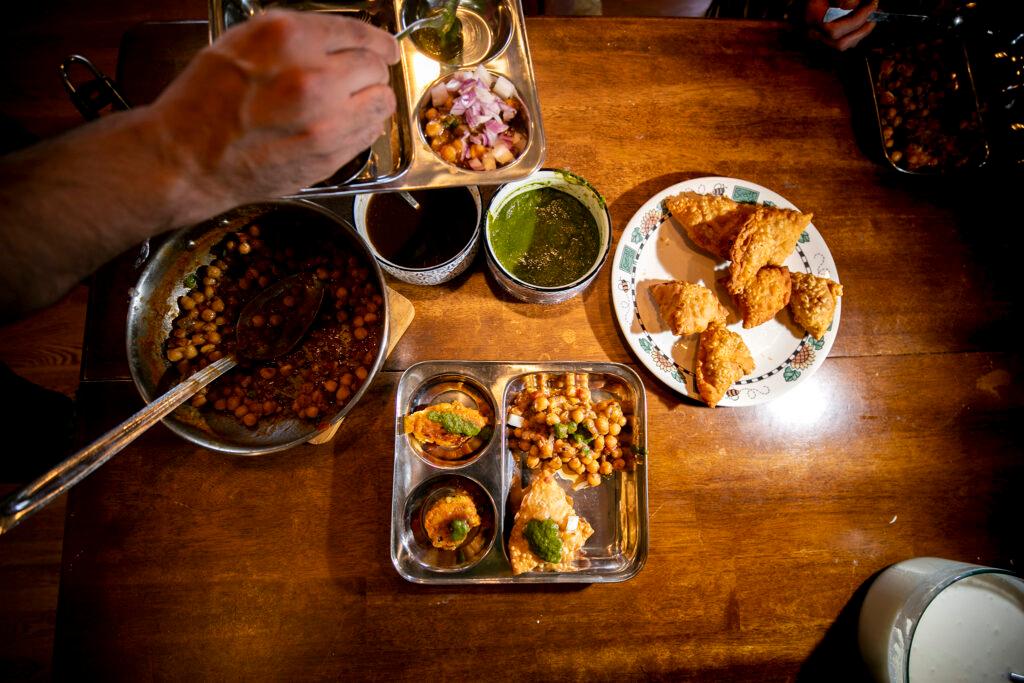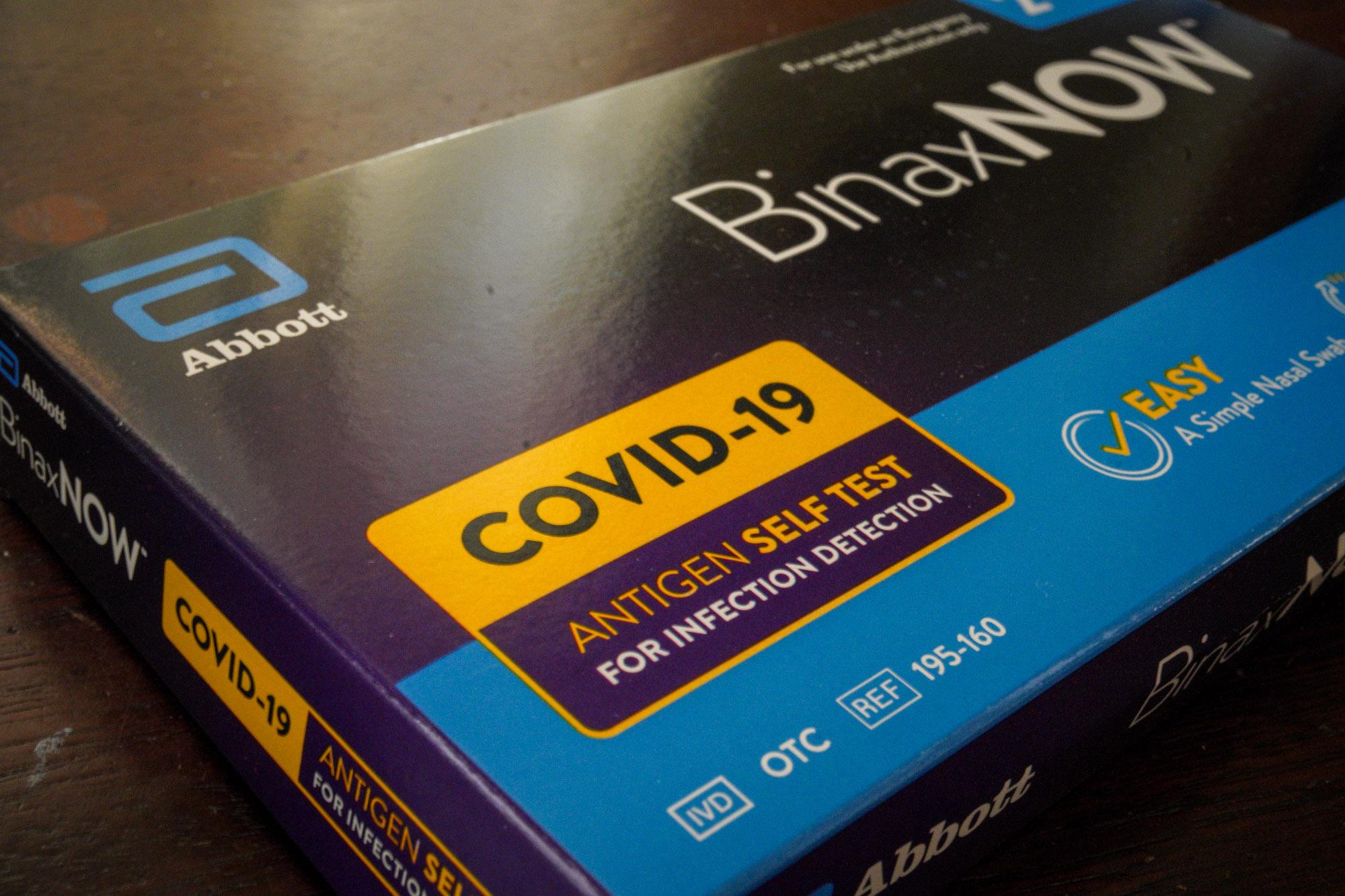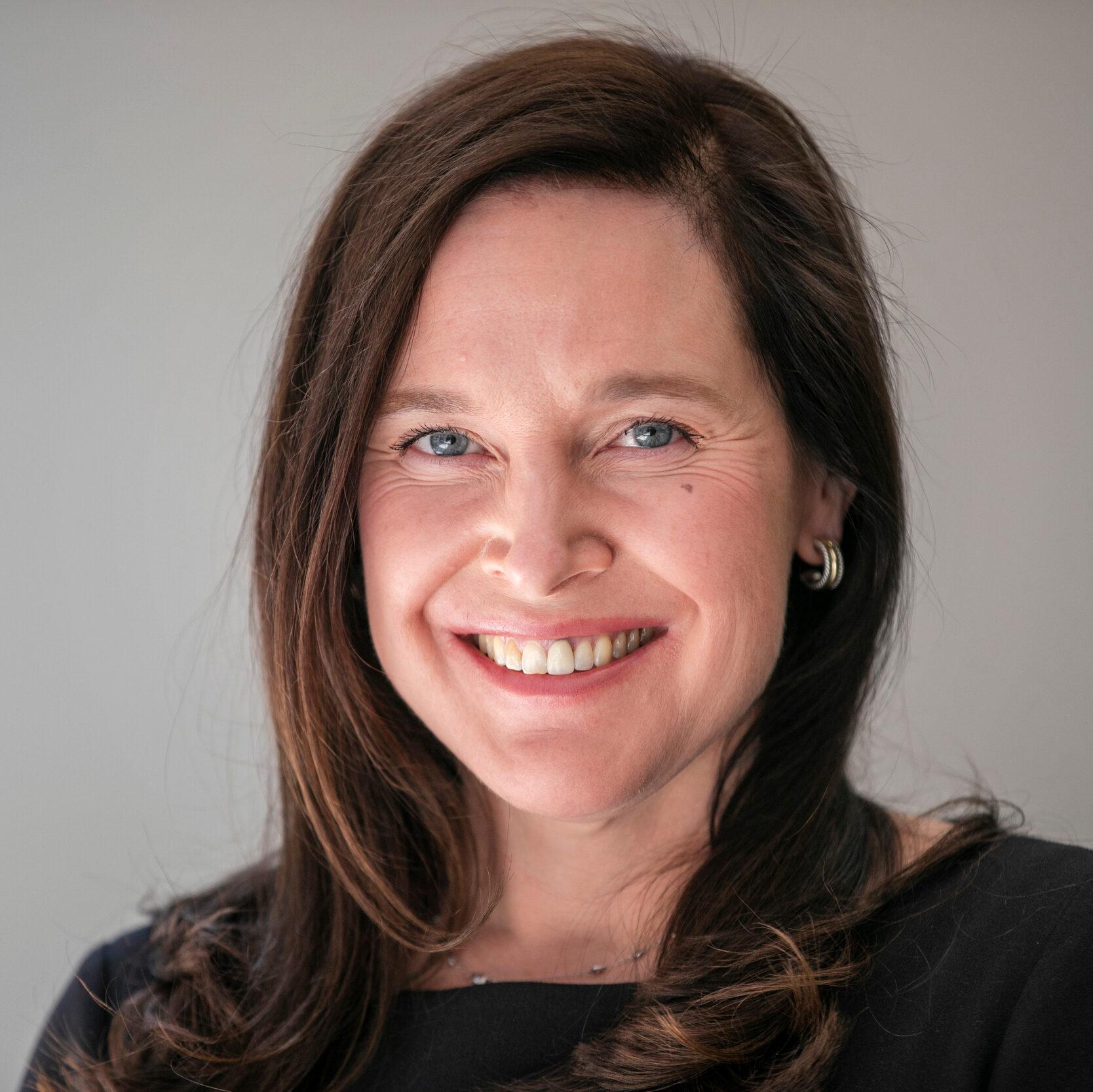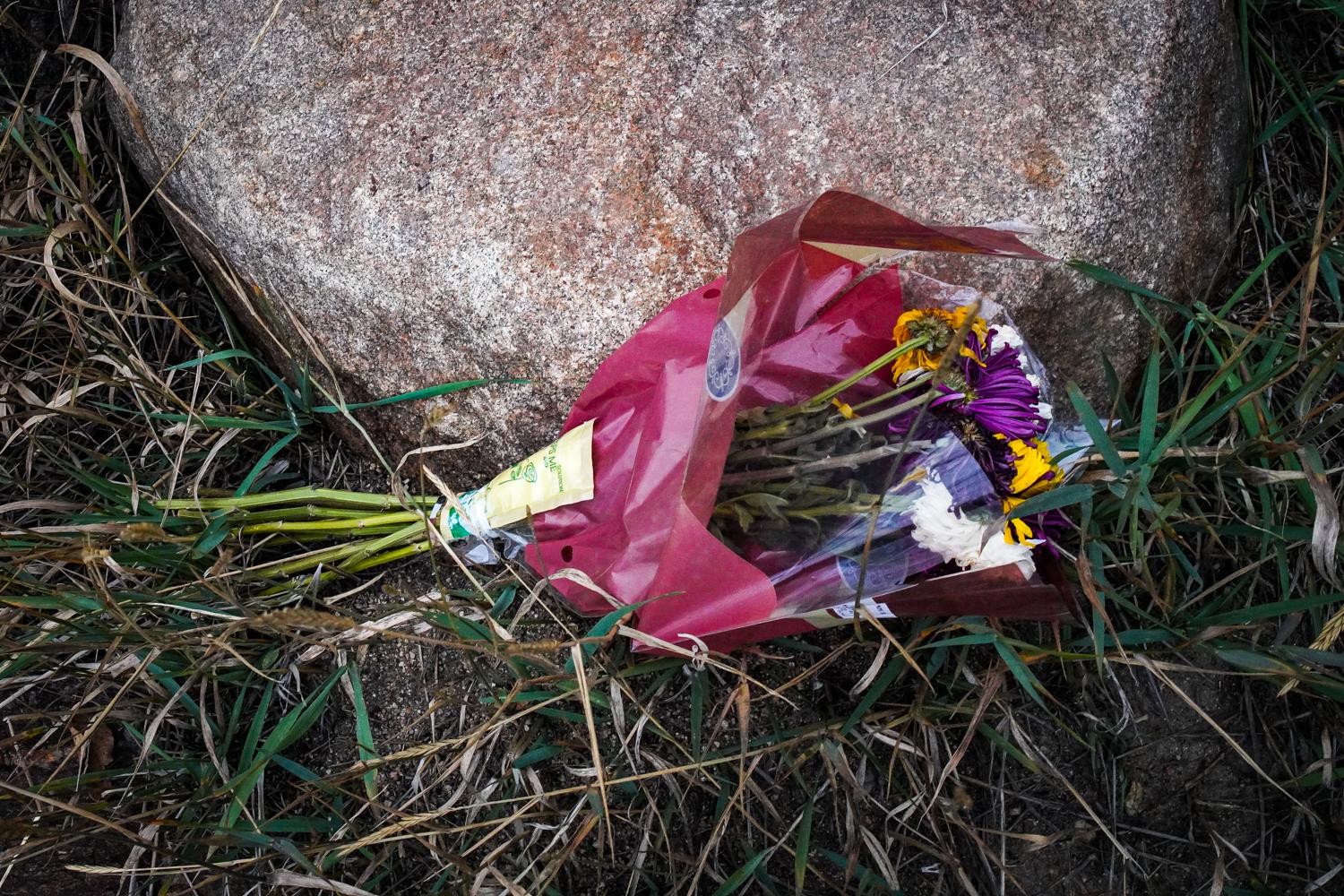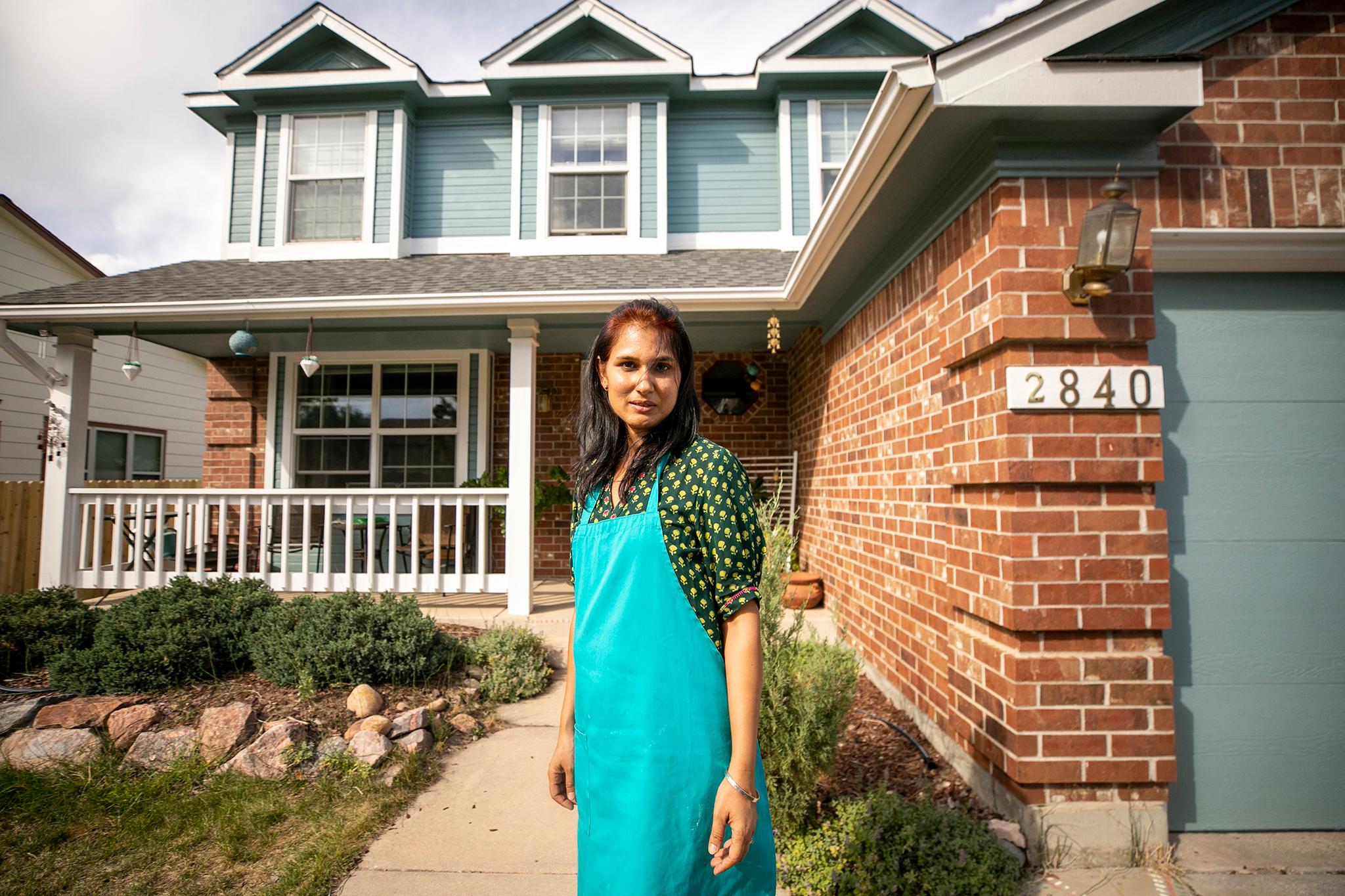
This is the second installment in our occasional series, ENTREE, about immigrants to Colorado creating a food-related business once they arrive, as a gateway to community and an anchor to their identity.
It was a Saturday afternoon in the Colorado Springs home of Monika Celly, her two sons, 11 and 16, and her husband, Sumit, who was outside organizing the garbage bins under the fall sunshine.
Inside, the kitchen was full of activity. Sitting on the table was a wooden box with about a dozen smaller square spaces, each about an inch or two in size. Each square held one of a range of spices: turmeric, garam masala, coriander, cloves, cumin seeds, and both brown and black cardamom seeds — all essentials to Indian cooking. Another compartment contained amchur, a tangy ground mango powder.
It was a must-have for her this afternoon, when the 46-year-old Celly, originally from the city of Chandigarh in the Indian state of Punjab, planned to teach a cooking class, where participants would learn to make street foods sold in India.
For such a class, amchur took center stage, because the sour-lemon-tasting powder adds a unique twist. “This is the difference between regular cooking and street food,” Celly explained. “You don't have that tanginess and that sharp flavors in our regular cooking.”
She regularly teaches a range of classes focused on Indian food, including one for kids only; cooking classes for a half-dozen people at once; private cooking parties; and team-building activities — all for about $120 per person. Other menus she teaches include the multi-step preparation of chicken tikka masala, a common dish in most Northern Indian restaurants, as well as a class about preparation for a Diwali celebration, at which participants make butter paneer, rice gulab, and mango lassi.
Since 2017, through her own business, Polka Dots and Curry, Celly has taught in her home in the Briargate neighborhood of Colorado Springs and in the community kitchen at a local natural grocery store.
The communal kitchen has a bit more room, but for a recent lesson, her home kitchen offered a glimpse into her life with her husband and their 11 year old, Augustya, who, along with his older brother and parents, are part of the small but growing Indian/Indian-American population in the Centennial state.
According to the U.S. Census’s American Community Survey, between 2017 and 2021, Colorado was home to close to 36,000 people who identified as either being born in India, or of Indian descent; up from just over 24,000 for the period of 2012 until 2016.
Flavor that touches all senses
“What is your spice level?” is the first question she asked Emily Maney, a public health social worker who had enrolled ahead of time. Maney didn’t mind the kitchen being cluttered with not only Celly’s ingredients, family and spice boxes, but also a reporter, a photographer and an audio expert with a microphone. Other class enrollees had canceled at the last minute, leaving more room for young Augustya to play sous-chef.
Selecting a mild spice level set the tone for the two-hour class, whose menu included two street foods: samosas, which are deep-fried pastries stuffed with potatoes, peas and spices, and aloo tikkis, potato patties with a masala-forward spice profile. She put chana masala, a chickpea curry that’s not traditionally a street food, on the menu as well, to round out the meal.
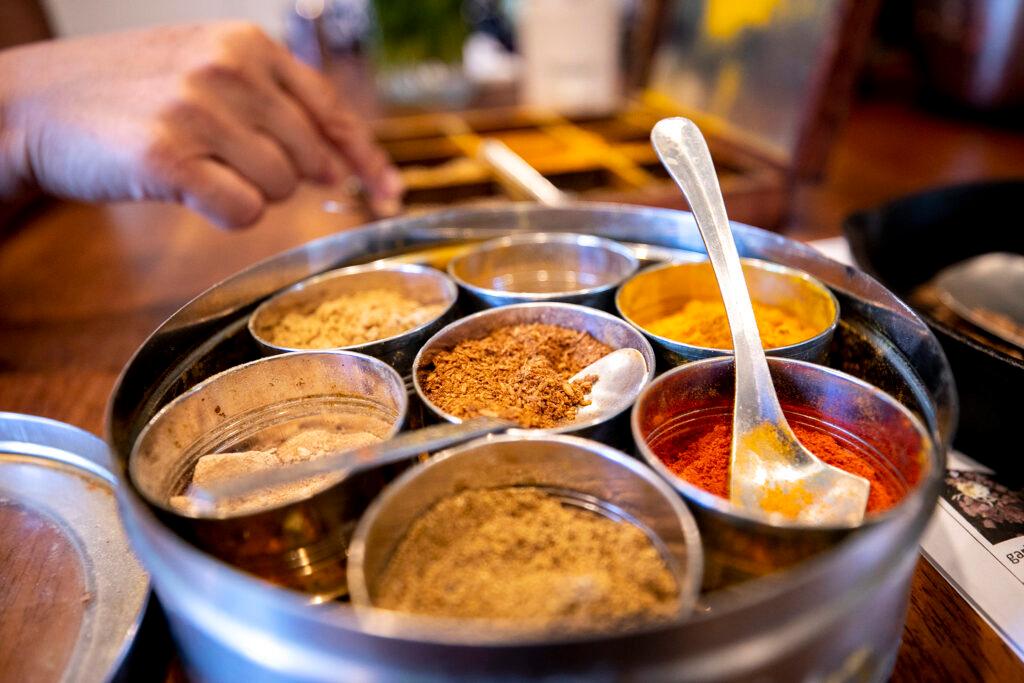
Throughout the afternoon, she blended teaching her recipes with giving insider tips. She described the tempering process: finding the right heat at which to cook the spices with base ingredients like ginger, onions and garlic. As she demonstrated, she talked about involving all the senses — one key to Indian cooking.
“Now this is raw Indian aroma, right?” she asked as she stirred seasonings and chopped onions and garlic. “You smell this, right? So when you are cooking, Indian cooking, you have to engage all your senses. You see the color?”
The onions, at this stage, were underdone. “It's not translucent, you smell it; it's not ready. It's still very raw. And when we were cutting, you could feel the ingredients, right?”
Later, she focused on how chopped, peeled potato cubes popped when they encountered her spices. “See the color?” she asked Maney. “Otherwise, potatoes are really bland and color-wise also, it's just flat. Now it's a nice texture, because of the spices and I'm sure the flavor is good.”
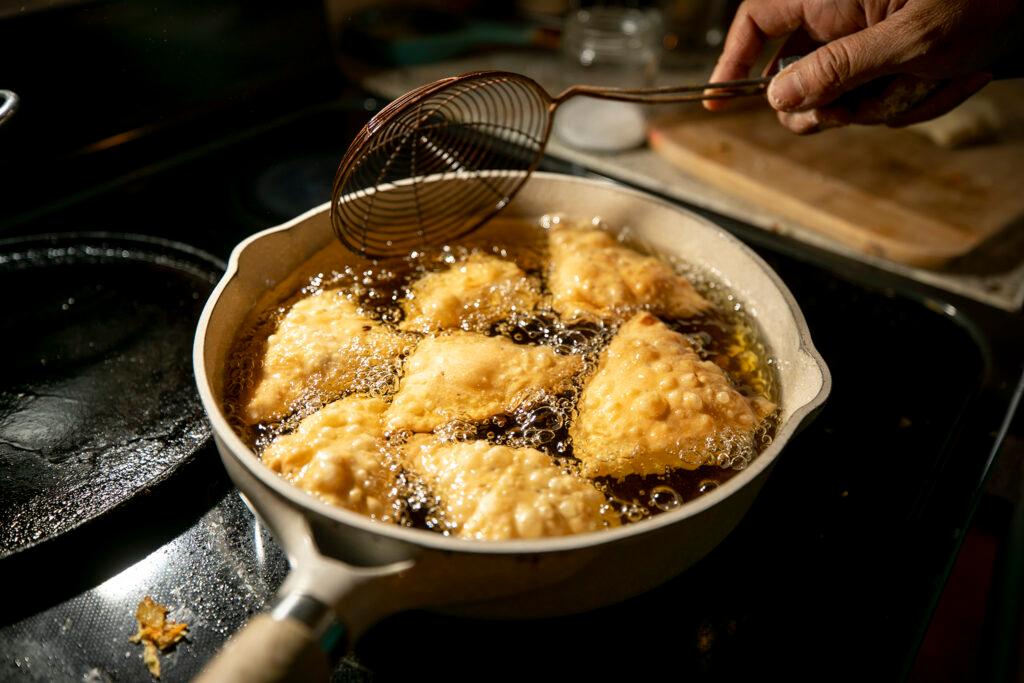
Augustya picked up a potato — a key ingredient for pretty much everything — and a vegetable peeler. When he whacked off the tip of the potato along with the skin, Celly suggested another implement to peel it, but he hung onto the peeler and told her hardly anything was lost.
“It’s like one 64th billionth of a potato,” he said, pronouncing “potato” in a way that playfully mimicked his mother’s accent.
Then he explained to his guests why his mom needed to relax: “When I have six grains of rice left on (my) plate, she says, ‘Eat your food!’
To that his mother started to laugh, unsurprised. “He will be roasting us like crazy,” she said.
The pre-teen’s roast wasn’t the only spicy thing in the kitchen; the stove-top was sizzling with the chana masala underway, then the potato patties and finally the samosas. The room was filling up with the fragrant aroma of Indian cooking.
Lessons inside and outside the kitchen
Throughout the class, Celly dropped tips about what makes cooking fun and different every time — both with Indian cooking and in general.
Where recipes were concerned, for example, she said: “A recipe is just like a rough draft . . . You can experiment. Don't just stick to it. Go with your own imagination.”
She had printed copies of the recipes to share with the participants.
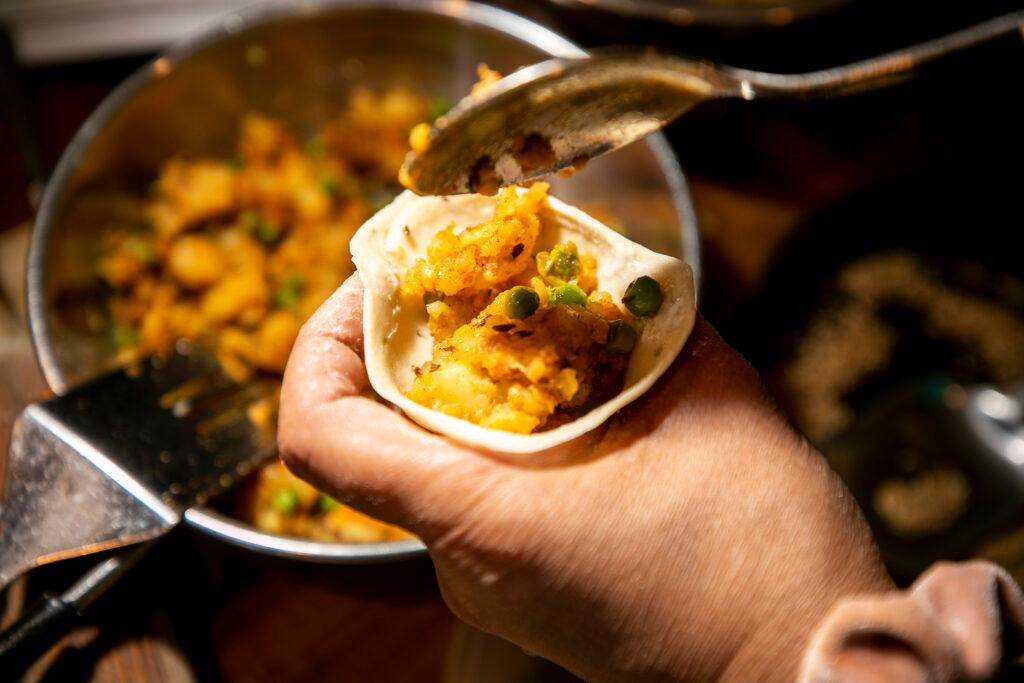
Another key lesson: A real Indian cook will insist that samosas be deep-fried in hot oil. “I want my deep-fried samosa. I don’t want air-fried, or oven-baked! No! I like my deep fried ones.”
That was the way she taught the class to make them: first, one forms a cone shape with the dough; then one pinches it closed along one seam; next, one fills it only half-way with a blend of seasoned potatoes and peas; finally, one seals the pouch with a mixture of flour and water and pinches closed with two fingers.
It was over food-making that the conversation meandered into stories that didn’t have anything to do with cooking — one of her favorite parts about teaching cooking classes. This time, the topic landed on how she met her husband, Sumit. “We met online through a matrimony website,” she said. “I actually sent him (an indication of) interest.”
After they began talking on the phone (and enjoying it), his parents in Delhi traveled to where her family lived in Punjab for a meeting. “When things looked right, his parents came to meet my family,” she recalled. “I met him after I met his parents.”
Once everyone agreed they were a match, in 2007, Sumit, who’d been in Colorado since 2000 and was working as a software engineer, returned home. “He flew to India, and within 10 days we were married,” she recalled happily.
After that, they returned to Colorado together. Coming to the U.S. meant she had to leave behind her successful career as a consultant who helped students make college and career plans. When she first arrived in Colorado Springs, she taught science classes in local public schools. Then she decided to devote herself full-time to raising her sons and growing her Indian food business, which now also includes some pre-packaged food items, such as savory pancake mix made of chickpea flour, for sale on her website.
On that Saturday afternoon, the samosas, which she’s had years of time to perfect since she and Sumit first met, weren’t quite the same. Maybe it was untrained hands, not hers, doing the stuffing and pinching.
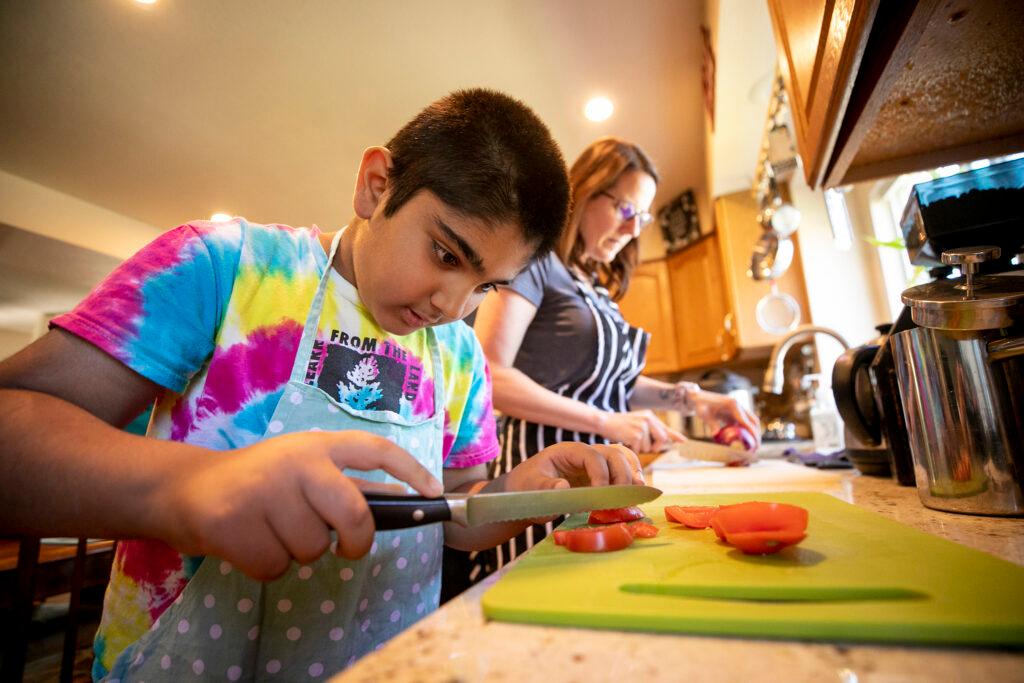
When Augustya took a look, he said: “It looks much different than normal for some reason. It might've just been since she took a little bit more time. Even though they have peas, they're still really good . . . You can see it's crunchy.”
As the afternoon continued, Sumit, 46, said the inherent socializing and bonding in cooking classes have helped them to form local connections. “It helps us be a part of the city,” he said, adding that his day job “doesn't really connect me with people here. I mean, it connects me with the people I work with, but it is different.”
This summer marked the first food festival devoted to Indian food in Colorado Springs. Organized by Celly, it was held at her sons’ elementary school, which has a cafeteria that opens to a side yard, where a henna tattoo artist set up and Indian stick dancers gave demos.
Once the food was ready, she said the festival went better than she’d expected.
“We had close to 900 people,” she said. “That just shows that people want to try Indian food.”
She said most people who take her cooking classes are first-timers, whose choice to enroll, she thinks, says a lot about them: “They are open to different cultures, they are more ready to accept immigrants like us.”
Food serves as a connector with strangers and family alike, she said, adding that she has talked for hours on the phone with Sumit’s mother, often discussing recipes.
Usually, Sumit said, when people come into their home to learn to cook Indian food, “it's not just food you're learning. . . it's more of an entire Indian experience. (It’s) the way we interact, and there's a lot more than just food.”
